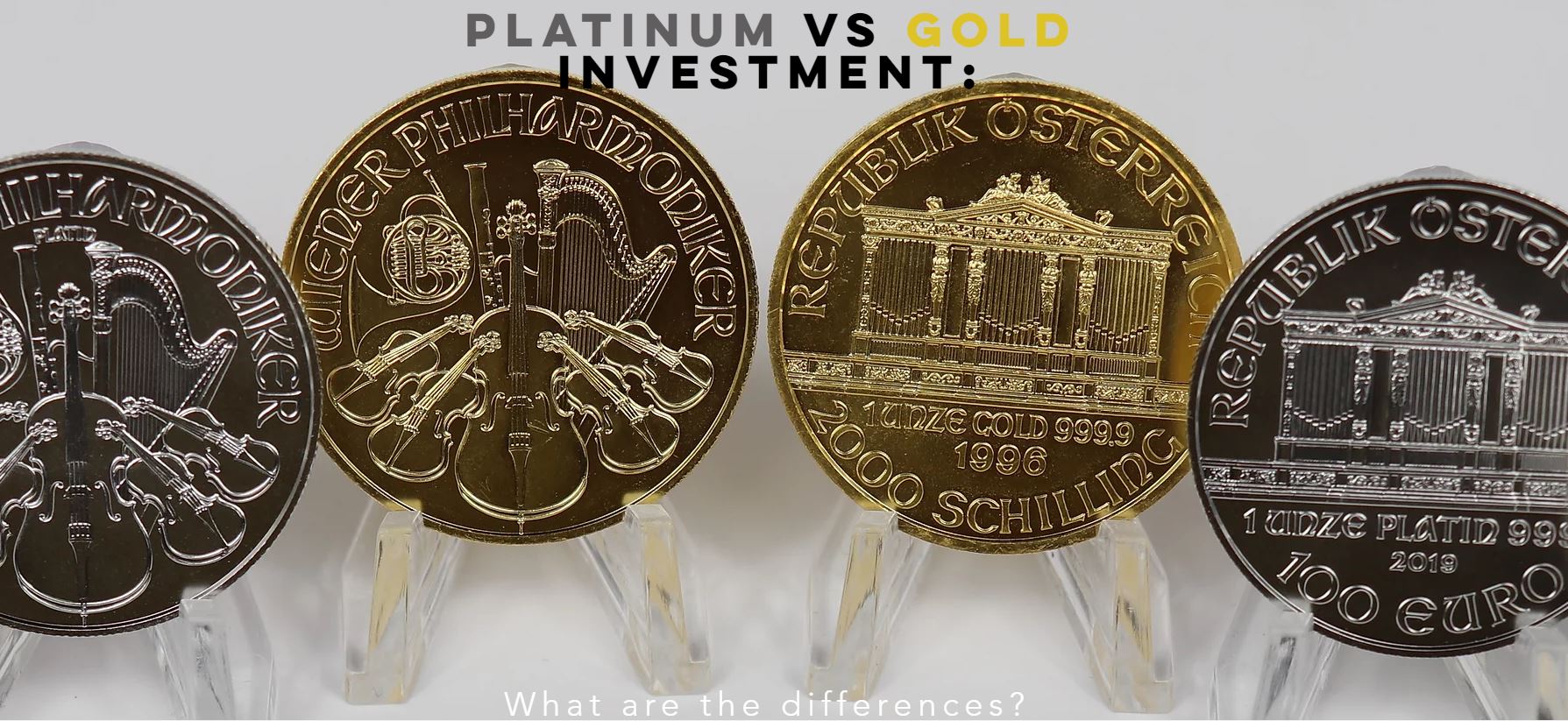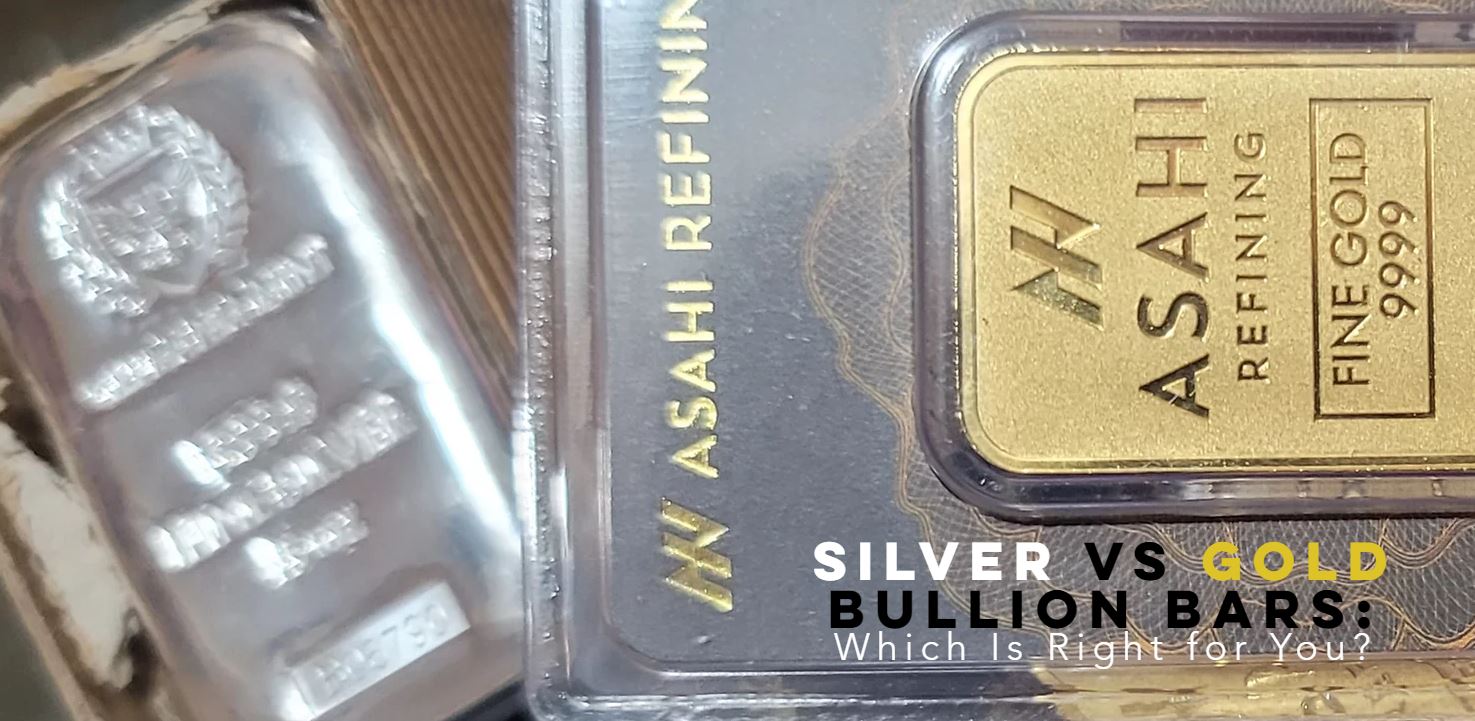Kyle Jernigan - February 6th, 2022
What You Need to Know before You Buy Precious Metals: A Guide

Before stocks, bonds, and our modern slate of complex investment products, the world ran precious metals. Gold, in particular, has been the choice throughout history. The pharaohs of old adorned their kings with it for their journey to the afterlife, and it's been used as a regulated coinage since at least 600 B.C.
It remains a popular investment option to this day because, as opposed to more abstract investments, precious metal is a physical good with intrinsic value. But before you buy precious metals to bolster your portfolio, there's more to the equation that you need to know.
There's not only a variety of types of metals traded but a variety of ways to invest in metal as well. So before you commit to a buying decision, let's look at some of the most popular metals and their respective investment options.
Types of Precious Metals to Invest In
While all precious metals have some intrinsic value, as investments they are not all created equal. And there are more options than you may be aware of.
Here are only a few popular options.
Gold
As metals and physical commodities go, gold is the most venerable choice of investment. Its value has been recognized by people of countless cultures for millennia.
Not only is it both rare and beautiful, but it finds use in the production of electronics, in dentistry and medicine, and even in space exploration. Its value to technology, in particular, helps to ensure that it will always be in demand.
The trade-off is that it's somewhat more prone to price fluctuation than other metals.
When there is economic or social upheaval the price tends to rise, driven by investor anxiety. When those conditions calm down, it tends to trend back downward. Be wary of chasing such trends.

8-gram piece of a larger 100-gram sheet of Gold from Valcambi Suisse, a famous Gold refining company from Switzerland. Photo Credit: Staff picture at a Investor Crate distribution center.
Silver
Along with gold, silver is one of the most popular precious metals to trade.
Like gold, it's similarly rare and attractive. And it's unique chemical properties lend it a wide variety of commercial and industrial uses. Silver has applications in everything from electronics and green energy production to medicine and even old-fashioned film photography.
It's also cheaper than gold, making it an easier metal to get started investing in.

A kilogram of pure Silver sourced by JBR Recovery Ltd recycled from waste materials. Photo Credit: Investor Crate Facility EAST.
Platinum
Platinum is a far scarcer resource than gold or silver and thus tends to trade at higher values. Far less of it is pulled from the ground per year, even though some major industries depend on it.
The automotive industry is the best example, where platinum is used in catalysts. These devices help reduce the amounts of harmful emissions a car puts out and are mandated by law in most countries. If you've ever had to replace a car's catalytic converter, you're intimately familiar with how expensive these parts can be thanks to the amount of platinum required to manufacture them.
Be aware, however, that much of the world's platinum is produced by only two countries: South Africa and Russia. Geopolitical events in these countries, along with trends in the automotive market, can make platinum the most volatile metal to trade.

A Platinum Bar in an official assayer sleeve from Valcambi SA. Photo Credit: Investor Crate Facility EAST.
Palladium
Lesser known than its counterparts above, palladium is another, shiny, silvery metal.
It's most used as an industrial product due to its unique properties. It's popular in dentistry, medicine, chemical applications, jewelry, and groundwater treatment.
And like platinum, it's an excellent catalyst, while also being cheaper and more reliable. Its popularity with the auto industry is to the extent that it helps drive down the value of platinum.
Ways to Buy Precious Metals
Just as there are multiple metals that you can invest in, there are multiple ways you can make your investment. Buying the metal itself is, of course, the simple option. But it need not be the only one that you consider.
Some easy ways to get involved in precious metal investing include the following.
Bullion
Bullion refers to coins and bars made from precious metals. Many national governments mint their own gold and silver bullion, though you can also purchase it through reputable private dealers.
Bullion is the most direct way to buy precious metals if you insist on physical ownership and are considered the only real choice for the investor preparing for a worst-case scenario. Other options may lose value if the financial institutions they rely on fail, but hard metal retains its inherent value.
The trade-off is that they're relatively illiquid. You may find it challenging to sell it off at a fair price if you need to do so in a hurry. Not to mention that you need a secure place to store it, usually a safe deposit box, so you'll want to factor that expense into your investment.
Commodity Exchange Traded Funds
Exchange-traded funds (ETFs) are a much more liquid and convenient way to trade precious metals. They're financial products backed by the commodity they represent. So when you invest in an ETF what you're buying are really shares in a fund rather than the material metals themselves.
Shares cannot be redeemed for the metals. Instead, you "cash out" when you sell.
Common Stocks and Mutual Funds
An indirect way to invest in precious metals is to buy shares in companies that mine for precious metals. It's an indirect way to invest as the value of a mining operation tends to increase alongside the value of the metal itself.
Mining operations have more potential upside than buying the metals themselves. However, they're complex investments more prone to volatility, so not the safe investment most people want out of precious metals.
Metal Investing for a Stronger Portfolio
Due to their scarcity and practical uses, the value of precious metals tends to be more stable than stocks, bonds, and the like. Hence every investor should buy precious metals in some capacity to help bolster a varied investment portfolio.
And fortunately, it's no longer prohibitively expensive to invest in metals. To learn how even a modest investor can add them to their portfolio, check out our guide on how to invest in precious metals.




I would still rather invest in gold!
Very helpful information – thanks for sharing!
I love that gold.
Palladium would be an interesting addition.
Gold and silver bullion are the only metals I like to hold.